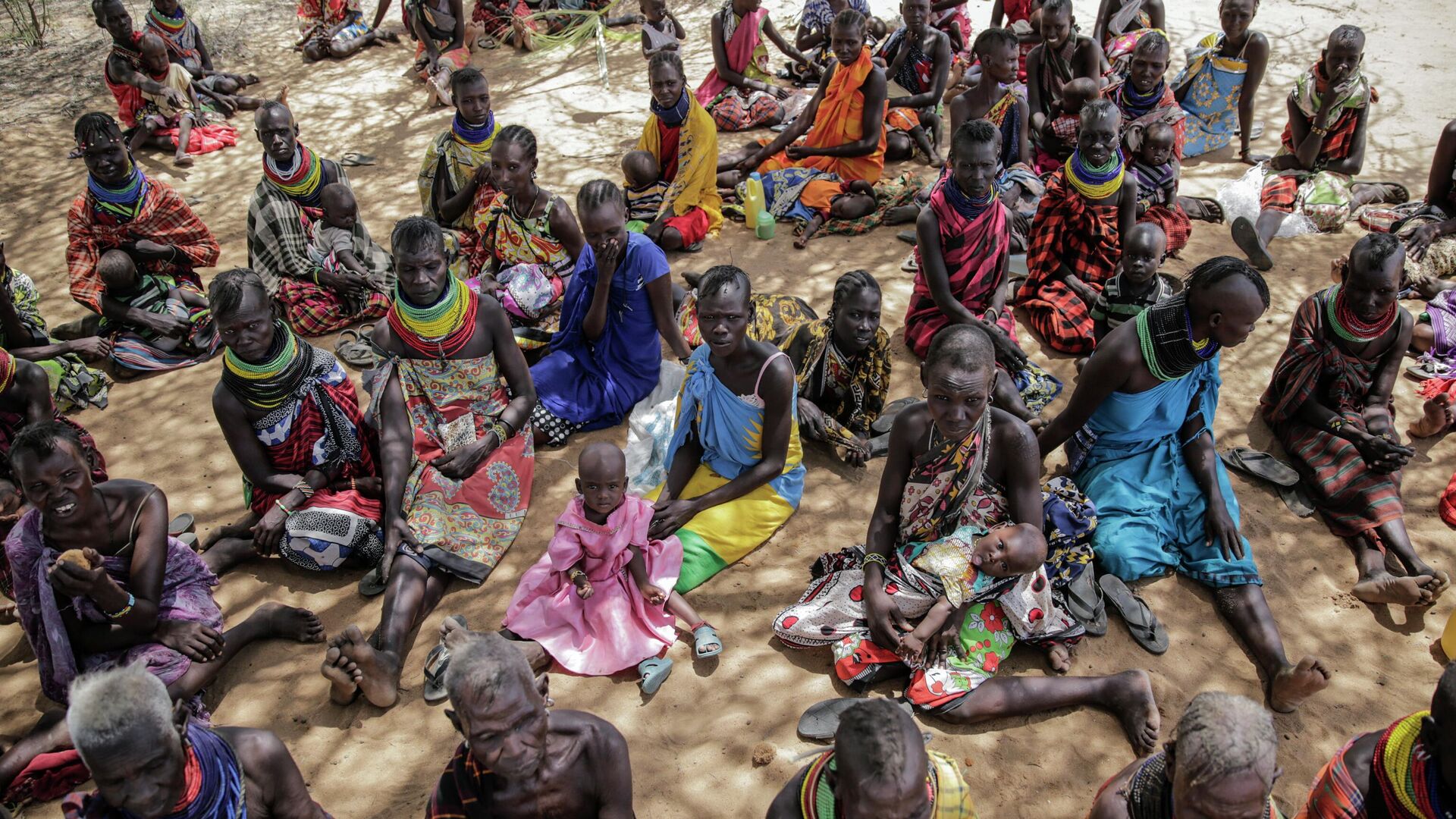https://en.sputniknews.africa/20230801/un-calls-for-increased-investment-in-south-sudan-to-avoid-catastrophic-food-crisis-1060984251.html
UN Calls for Increased Investment in South Sudan to Avoid 'Catastrophic' Food Crisis
UN Calls for Increased Investment in South Sudan to Avoid 'Catastrophic' Food Crisis
Sputnik Africa
MOSCOW (Sputnik) - The United Nations' Food and Agriculture Organization (FAO) on Tuesday called on the international community to increase investment in South... 01.08.2023, Sputnik Africa
2023-08-01T17:35+0200
2023-08-01T17:35+0200
2023-08-01T17:35+0200
south sudan
united nations (un)
north africa
world food programme (wfp)
https://cdn1.img.sputniknews.africa/img/07e7/08/01/1060983779_0:160:3072:1888_1920x0_80_0_0_5ff04bfec22756aa9c7cd15d8bb12b88.jpg
"South Sudan has the potential to be the breadbasket of east Africa, but the climate crisis, poor agriculture infrastructure, instability, and economic shocks continue to disrupt agricultural and livestock productivity and food availability. Investments and enabling policies that will improve on longer term food security, resilience and climate adaptation are urgently needed," FAO Director-General Qu Dongyu was quoted as saying in the FAO statement. The humanitarian emergency in South Sudan has been caused by "a combination of conflict, climate and soaring food and fuel prices," with some 122 million more people suffering from chronic malnutrition since 2019, the statement read. In addition, hostilities in Sudan have forced over 190,000 people to flee across the border into South Sudan, "further straining already scarce resources," according to the statement. Executive Director of the World Food Programme (WFP) Cindy McCain said that WFP did not "even have the resources needed to feed those who are hungry today," urging the global community to step up its assistance to South Sudan.The statement added that the FAO, WFP and the International Fund for Agricultural Development’s (IFAD) chiefs signed a new five-year partnership agreement during their recent three-day visit to the African nation to renew inter-agency cooperation and deepen their collaboration at the global, regional and country levels, as well as to support the achievement of Sustainable Development Goal 2 – Zero Hunger.
south sudan
north africa
Sputnik Africa
feedback@sputniknews.com
+74956456601
MIA „Rossiya Segodnya“
2023
Sputnik Africa
feedback@sputniknews.com
+74956456601
MIA „Rossiya Segodnya“
News
en_EN
Sputnik Africa
feedback@sputniknews.com
+74956456601
MIA „Rossiya Segodnya“
Sputnik Africa
feedback@sputniknews.com
+74956456601
MIA „Rossiya Segodnya“
south sudan, united nations (un), north africa, world food programme (wfp)
south sudan, united nations (un), north africa, world food programme (wfp)
UN Calls for Increased Investment in South Sudan to Avoid 'Catastrophic' Food Crisis
MOSCOW (Sputnik) - The United Nations' Food and Agriculture Organization (FAO) on Tuesday called on the international community to increase investment in South Sudan's food and agriculture sectors amid a humanitarian emergency and poor economic conditions to avert a devastating food crisis.
"South Sudan has the potential to be the breadbasket of east Africa, but the climate crisis, poor agriculture infrastructure, instability, and economic shocks continue to disrupt agricultural and livestock productivity and food availability. Investments and enabling policies that will improve on longer term food security, resilience and climate adaptation are urgently needed," FAO Director-General Qu Dongyu was quoted as saying in the FAO statement.
The humanitarian emergency in South Sudan has been caused by "a combination of conflict, climate and soaring food and fuel prices," with some 122 million more people suffering from chronic malnutrition since 2019, the statement read.
In addition, hostilities in Sudan have forced over 190,000 people to flee across the border into South Sudan, "further straining already scarce resources," according to the statement.
"At the same time, 7 out of 10 people in South Sudan are between ages 18 to 35 and youth unemployment rates are at 50 percent, exacerbated by low levels of education, limited skills, and a weak economy," the document also said.
Executive Director of the World Food Programme (WFP) Cindy McCain said that WFP did not "even have the resources needed to feed those who are hungry today," urging the
global community to step up its assistance to South Sudan.
The statement added that the FAO, WFP and the International Fund for Agricultural Development’s (IFAD) chiefs signed a new five-year partnership
agreement during their recent three-day visit to the African nation to renew inter-agency cooperation and deepen their
collaboration at the global, regional and country levels, as well as to support the achievement of Sustainable Development Goal 2 – Zero Hunger.

